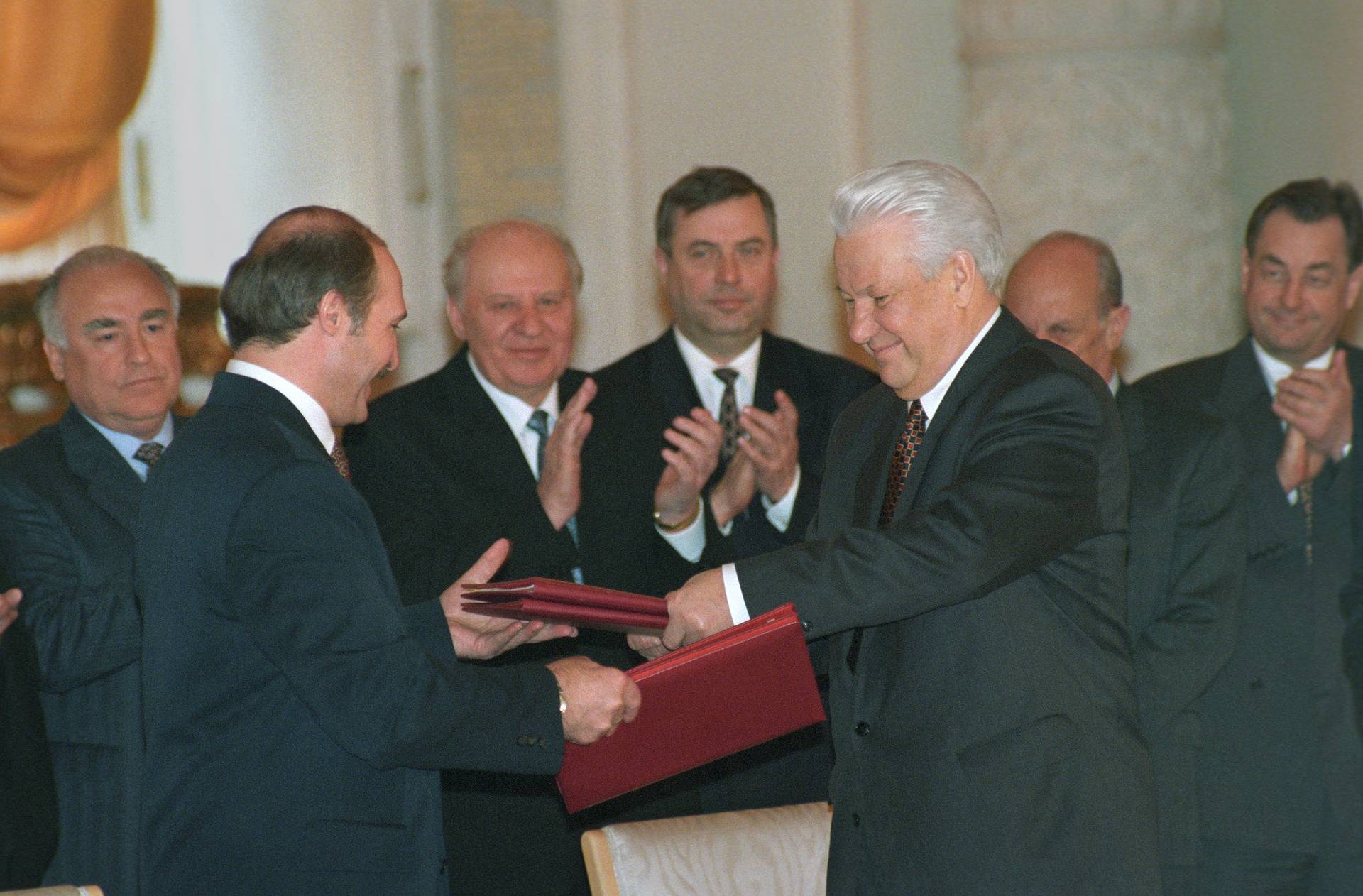Integration program and revision of the Union Treaty
 The situation has not changed
The situation has not changed

Russian government representatives reported that the work on an in-depth integration programme was nearing completion and that it would not depart from the 1999 agreement. That said, the Russian Central Bank head said that the single currency negotiations were at “very initial stages”.
On June 21st, Primer Ministers Rumas and Medvedev would meet in Minsk to discuss the progress of the working group on a deeper integration programme, said the Russian Economic Development Minister, Oreshkin, after a meeting with the Belarusian Economy Minister Kruty in Moscow. According to Oreshkin, the integration programme was agreed by 90% and complied with the 1999 Union Treaty.
Oreshkin disclosed details of the work on the programme and outlined Russia’s expectations.
1. According to him, Prime Ministers should be ready to approve two documents: the Principles and the Roadmap. The “conceptual document” establishing the integration principles must comply with the Union Treaty of 1999, which designated the parity of the parties, their “sovereign equality” and voluntariness of Russia and Belarus in decision-making. The document on the integration roadmap means that the parties yet have not agreed on the integration programme by 100% and agree on the roadmap which will outline actions to be undertaken by the parties for the integration programme.
2. Oreshkin listed specific issues considered by the working group: “Tax legislation, tax administration, customs administration, industry regulations, including fuel and energy sector, agriculture regulations”. Since 1999, customs regulations have been substantially harmonized within the Eurasian Economic Union. As for industry regulations, there has been some unification of regulatory standards, partly due to the EEU, partly due to cuts in public spending on the industry in Belarus (due to the lack of funds), and significant increases in public spending in Russia, including the introduction of state programmes. The same applies to agriculture. Russia and Belarus have very different tax systems, however, there was a rapprochement in tax administration approaches. In fact, it would be more accurate to say that in the past twenty years, tax administration was developing considering global regulations. Overall, the ‘roadmap’ and the ‘integration programme’ are likely to reflect the processes occurring in developing post-soviet autarchic economies, in globally integrated economies and in bilateral trade and within the EEU.
3. The parties are unlikely to adopt ambitious plans at this stage. Firstly, because Oreshkin frequently refers to the Union Treaty of 1999, which is unlikely to be revised although it contains more unacceptable clauses for Russia than for Belarus. Secondly, the parties have successes to refer to: in the past 20 years, economies of both states have made considerable progress. Even a mere reflection of this progress in the integration document would look impressive and if complemented with a few points on the harmonization of tax regulations or industrial policies, would create the impression of titanic work.
Subscribe to our newsletter




Situation in Belarus
Constitutional referendum: main consequences


 Video
Video
How to count the political prisoners: are the new criteria needed?


 Video
Video
Paternalism In Decline, Belarusian Euroscepticism, And The Influence Of Russia


 Video
Video












